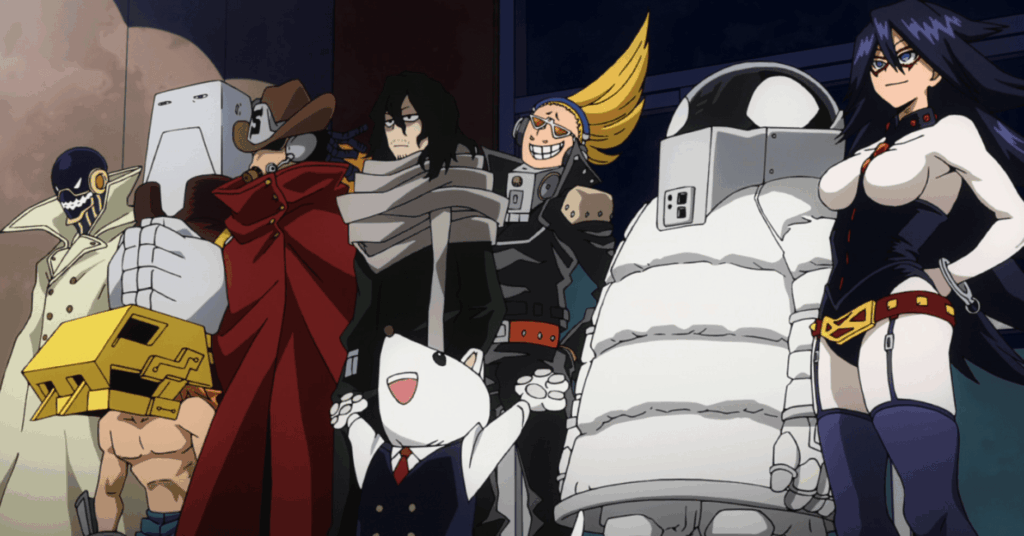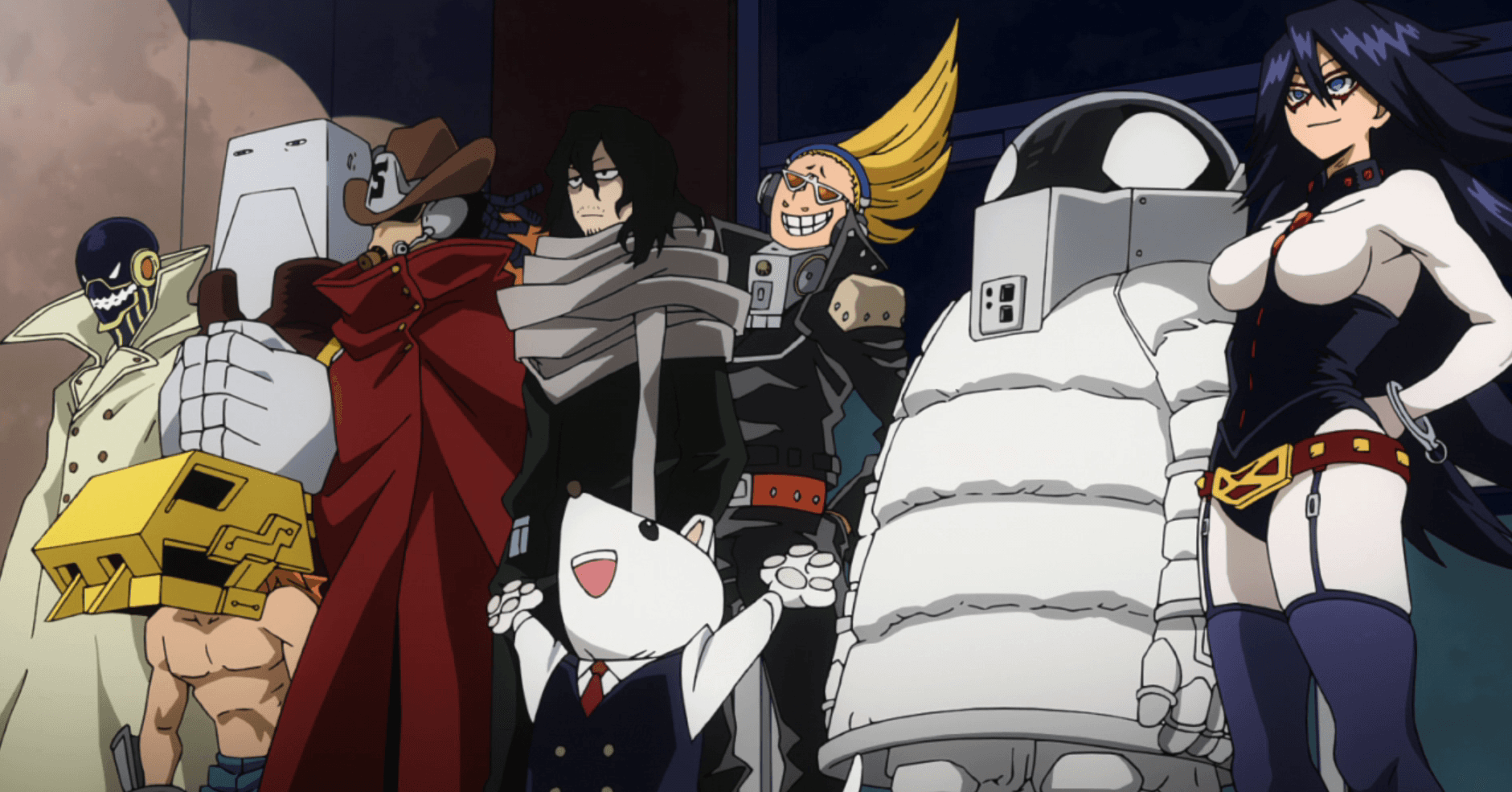
American Hero: Exploring the Concept in My Hero Academia
The concept of the “American Hero” resonates deeply within the cultural consciousness, often conjuring images of strength, justice, and unwavering dedication to the greater good. This ideal, while rooted in American history and folklore, has found a fascinating echo within the popular Japanese manga and anime series, My Hero Academia. This article delves into how My Hero Academia interprets and adapts the idea of the American Hero, examining its influences, deviations, and the unique perspective it offers on heroism in a globalized world. The series, known for its vibrant characters and compelling storylines, provides a unique lens through which to view the complexities of what it truly means to be an American Hero – or, more broadly, a symbol of hope and inspiration to others.
The Influence of American Comics on My Hero Academia
My Hero Academia creator, Kohei Horikoshi, has openly acknowledged the significant influence of American comic books, particularly those from Marvel and DC, on his work. Characters like All Might, the series’ central figure of hope and justice, are heavily inspired by iconic American superheroes such as Superman. All Might’s character design, his unwavering optimism, and his dedication to saving others all reflect the core values often associated with the traditional American Hero.
However, My Hero Academia doesn’t simply replicate these archetypes. It filters them through a Japanese cultural lens, adding layers of nuance and complexity. The emphasis on teamwork, discipline, and self-improvement, which are central to Japanese society, are interwoven into the narrative of heroism, creating a unique blend of East and West. This fusion allows the series to explore the universal appeal of heroism while simultaneously challenging and redefining its boundaries.
All Might: A Symbol of American Hero Inspiration
All Might, the former number one hero, serves as the primary embodiment of the American Hero concept within the series. His larger-than-life persona, his unwavering smile, and his signature catchphrase, “I am here!,” are all deliberate homages to the classic American superhero. He is presented as a beacon of hope, a symbol of unwavering strength, and a protector of the innocent. His influence extends beyond his physical power; he inspires others to strive for greatness and to believe in the power of good.
However, the series also explores the vulnerabilities and sacrifices that come with embodying such an ideal. All Might’s declining health and his eventual retirement force the characters and the audience to confront the reality that even the most powerful heroes are not invincible. This adds a layer of depth and realism to the concept of the American Hero, highlighting the human cost of maintaining such an image.
Star and Stripe: A Direct Homage to American Heroism
The introduction of Star and Stripe, America’s number one hero, provides a more direct exploration of the American Hero archetype within the My Hero Academia universe. Her character design, her Quirk (New Order), and her overall demeanor are all deliberately Americanized. She represents the ideals of freedom, justice, and unwavering dedication to protecting others, mirroring the traditional values associated with the American Hero.
Star and Stripe’s presence allows the series to explore the cultural differences and similarities between Japanese and American heroism. Her interactions with the Japanese heroes highlight the contrasting approaches to problem-solving, leadership, and the overall definition of what it means to be a hero. This cross-cultural exchange adds depth and complexity to the narrative, challenging viewers to consider the diverse perspectives on heroism that exist around the world.
Beyond the Symbol: The Individual Hero’s Journey
While characters like All Might and Star and Stripe represent the idealized version of the American Hero, My Hero Academia also emphasizes the importance of individual growth and development. The series follows the journey of Izuku Midoriya, a young boy who inherits All Might’s Quirk and strives to become the next symbol of peace. Midoriya’s journey is not simply about acquiring power; it’s about learning to understand the responsibilities and sacrifices that come with being a hero.
Midoriya’s struggles, his doubts, and his unwavering determination to overcome adversity resonate with audiences on a personal level. He represents the idea that anyone, regardless of their background or abilities, can aspire to be a hero. This message aligns with the core values of the American Hero concept, which emphasizes the importance of individual initiative and the pursuit of the greater good.
The Dark Side of Heroism: Examining the Flaws
My Hero Academia doesn’t shy away from exploring the potential downsides of the hero system. The series examines the pressures and expectations placed upon heroes, the potential for corruption and abuse of power, and the psychological toll that comes with constantly facing danger and violence. Characters like Endeavor, the former number two hero, represent the darker aspects of the American Hero archetype, showcasing the dangers of prioritizing power and recognition over genuine compassion and empathy.
By exploring these flaws, My Hero Academia challenges viewers to critically examine the concept of heroism and to consider the ethical implications of wielding extraordinary power. It emphasizes the importance of accountability, self-reflection, and the need for constant vigilance against the potential for corruption within the hero system. This nuanced approach adds depth and complexity to the narrative, making it more than just a simple superhero story.
The Globalized Hero: Adapting to a Changing World
In an increasingly interconnected world, the concept of the American Hero is evolving. My Hero Academia reflects this change by incorporating characters and storylines that address global issues and challenges. The series explores the importance of international cooperation, the need for heroes to work together across borders, and the recognition that heroism is not limited to any one nation or culture.
The presence of foreign exchange students at U.A. High School, the establishment of international hero alliances, and the exploration of global threats all contribute to the series’ portrayal of a globalized hero system. This reflects the growing recognition that the challenges facing humanity require collective action and that the ideals of the American Hero – justice, compassion, and dedication to the greater good – are universally applicable.
My Hero Academia: A Modern Take on the American Hero
My Hero Academia offers a compelling and nuanced exploration of the American Hero concept. By blending American superhero tropes with Japanese cultural values, the series creates a unique and engaging narrative that resonates with audiences around the world. It celebrates the ideals of justice, compassion, and self-sacrifice while also acknowledging the complexities and challenges that come with embodying such an ideal. The series doesn’t just present heroes as flawless individuals; it portrays them as flawed human beings who are constantly striving to improve themselves and to make the world a better place.
Ultimately, My Hero Academia reminds us that heroism is not about possessing extraordinary powers; it’s about making a conscious choice to use those powers for the benefit of others. It’s about standing up for what is right, even in the face of adversity, and about inspiring others to do the same. In this way, the series offers a powerful and timeless message about the importance of hope, courage, and the enduring power of the human spirit. The exploration of the American Hero, filtered through a Japanese lens, offers a fresh and insightful perspective on this enduring archetype.
The enduring popularity of My Hero Academia speaks to the universal appeal of the hero archetype. While the series draws heavily from the American Hero tradition, it also adds its own unique spin, creating a compelling and relevant narrative for a global audience. [See also: The Symbolism of Quirks in My Hero Academia] [See also: All Might’s Impact on Hero Society] The exploration of heroism, both its triumphs and its failures, makes My Hero Academia a valuable contribution to the ongoing conversation about what it means to be a hero in the 21st century. The series continues to inspire and entertain, proving that the concept of the American Hero, in its many forms, remains a powerful and relevant force in popular culture.

